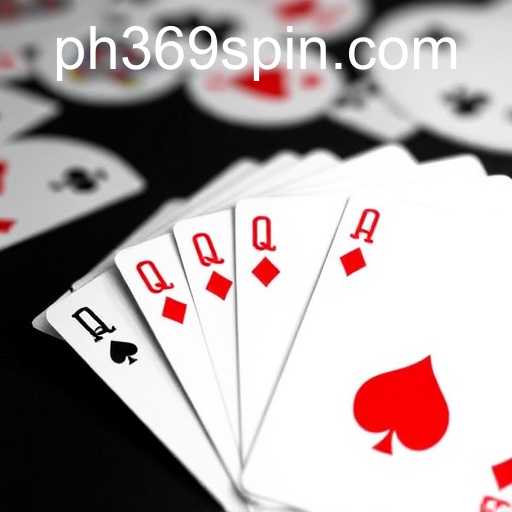Discover the rich history and diverse world of card games, including the buzz around the innovative concept of PH369, a term that intrigues card game enthusiasts.
The Timeless Appeal of Card Games
Card games have captivated players for centuries, offering both simple amusements and complex strategic challenges. From the earnest simplicity of solitaire to the lively exchanges of poker, these games have stood the test of time, continually evolving to engage new generations of enthusiasts. Within this vast landscape of card games, the key term 'PH369' has begun to surface, hinting at a niche that embraces both traditional formats and contemporary innovations.
The History and Evolution of Card Games
The origins of card games can be traced back to ancient civilizations. It is believed that the first playing cards emerged in China during the Tang dynasty, around the 9th century. Initially, these cards were simple, featuring basic designs and numeric values. Over time, they migrated across continents, reaching the Middle East by the 12th century and further spreading into Europe.
As playing cards traveled, they morphed to reflect regional cultures, resulting in various decks with unique suits and symbols. By the 14th century, the French developed the suits of spades, hearts, diamonds, and clubs, which have become the standard across many Western card games.
The Diverse World of Card Games
Today, card games can be broadly categorized into four types: trick-taking games, matching games, shedding games, and accumulation games. Trick-taking games, such as bridge and spades, require players to strategically win "tricks" or rounds. Matching games like rummy focus on creating sets or sequences of matching cards, while shedding games such as Uno revolve around the objective of being the first to play all one’s cards. Finally, accumulation games, like blackjack, involve gathering a specific score or number of cards.
Trick-Taking Card Games
Among the most popular trick-taking games, bridge stands out as a game of intellect and partnership. Originating from whist, this game requires precise communication and teamwork between partners to outmaneuver opponents. Another notable trick-taking game is hearts, celebrated for its blend of tactical foresight and luck.
Matching Card Games
Matching games, on the other hand, emphasize creating specific card combinations. Rummy remains a beloved choice for its straightforward play and adaptability across different versions. Mahjong, though often played with tiles, can also be played as a card game, capturing similar patterns of melding and otherwise matching sets.
The Strategic Challenges of Card Games
Card games often require not just skill but also psychological insight. Poker, for example, demands an astute understanding of odds and human behavior. Players must decide on strategic bluffs and gauging confidently when they should bet high or fold. With the rise of online platforms, poker has gained a new dimension — allowing players worldwide to engage in competitive play.
Poker: An Iconic Strategic Card Game
Poker is arguably the card game most associated with strategy and mind games. From Texas Hold'em to Omaha, poker holds a wide variety of styles within its fold. Its allure lies in the blend of mathematics, psychology, and chance, making it not only a game of luck but also one of substantial skill.
The competitive nature of poker and its significant cultural presence have led to widespread tournaments. The World Series of Poker, for example, draws thousands of hopeful participants annually, each vying for both financial gain and the prestige that a championship title entails.
Modern Innovations and Card Games: Enter PH369
The digital era has ushered in new ways to experience traditional card games, from online platforms to mobile apps. This has also paved the way for newer formats that blend card games with modern technology. Enter 'PH369', a buzzword increasingly making waves in the card gaming community. Appearing to represent a set of principles or innovations, PH369 could embody a mathematical or strategic framework that players can use to enhance their game performance. Though the specifics of PH369 remain obscure, it remains a topic of curiosity among enthusiasts eager to leverage any potential advantages it might hold.
As card games continue to thrive both in-person and online, they encapsulate a balance of chance, strategy, and social interaction that few other games can match. Whether one is engaged in a tense poker showdown or a relaxed game of solitaire, the intrinsic charm of card games promises entertainment and mental stimulation. The emergence of modern concepts like PH369 illustrates how the card gaming community is continually innovating, ensuring these games remain relevant and appealing for generations to come.
Conclusion: The Future of Card Games
As we move forward, the excitement surrounding card games will no doubt endure. Their capacity to adapt and grow, evidenced by concepts such as PH369, positions them as timeless sources of enjoyment. With every shuffle and deal, card games invite players into worlds of possibility, strategy, and community. Whether shared among friends on a quiet evening or across a table at a bustling casino, the allure of card games maintains its powerful draw.




